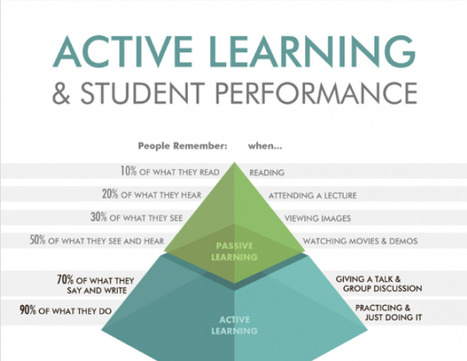Whether we do so consciously or not, we all form expectations about certain things in our lives, from how much we think we’ll enjoy a particular experience to the expectations we form about ourselves and others. Sometimes these expectations are based on prior experience, but more often than not, they’re based on what we’ve been told or the subconscious beliefs we hold.
Via Elizabeth E Charles



 Your new post is loading...
Your new post is loading...












